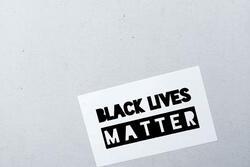Reexamining My Privilege in My City of Minneapolis
I used to spend hours complaining about my pale Irish skin, the fact that two seconds in the sun turned me into a blistered tomato, and that, instead of getting a tan, I was stuck with freckles filling my face each summer. But even in my early childhood, I understood that the pigmentation of my skin inarguably offered me greater opportunities and safety than my non-white peers.
Cut to the summer of 2020, when a pandemic ravaged my midwestern city. Instead of being able to focus on avoiding this deadly virus, protesters in my city of Minneapolis were begging a system to change so that people of color, and specifically Black Americans, could walk away from encounters with the police still breathing.
As demands for change swept through the streets, the question of whether or not it was safe to protest arose within my family. My mother is at greater risk if exposed to COVID-19, and when making choices about attending crowded protests, I centered this concern. I would’ve marched and yelled to the Minnesota State Capitol as I have before, but instead, I decided to take action in online spaces and visit the George Floyd memorial during less crowded times of the day.
I was able to participate in activism through these alternate routes while keeping my family safe, but that choice wasn’t afforded to many of my friends and acquaintances. For people of color, there wasn’t and isn't an option to abstain from protesting: they are protesting for the right to breathe and for the right to live. Over the next few months, my social media became inundated with videos of protesters pleading for change and binding together in the face of our communal crisis. The murder of George Floyd didn't drastically changed what I saw, understood, and knew about the racist system under which our society functions. It did, however, force me to reevaluate how I fit into the equation.
Oftentimes in American history class, I joked with friends that all the lessons being taught didn’t apply to me because I was from an immigrant family so I “couldn’t claim the mess their ancestors had made.” I've come to realize that regardless of when I “entered” into this country's story, my actions (or lack thereof) are equally as impactful. In the wake of George Floyd’s murder, I was forced to reexamine how I fit into and enable the system which allows for such egregious failures of basic human rights. I made myself listen instead of memorizing statistics and facts, and I heard the stories and experiences of those failed by my city and the United States government. I researched how I could help make a difference. Most significantly though, I came to terms with the privilege guaranteed by my skin color. I looked at those moments where I had options and people of color were not given any. I don’t regret taking measures to keep my family safe, but knowing that many of my peers didn’t have that option, I now better understand the extent of my privilege and the ways in which I can work to promote equality and equity for all through my activism.
I’m aware of the line I walk between enjoying the privileges of the majority and the tribulations of belonging to a minority. I’m an Irish-Israeli immigrant and Jewish woman, but also a cisgender, heterosexual, white person with economic stability. Understanding how those spheres of my identity coexist and intersect has been taxing and, at times, utterly confusing. But they offer me a unique perspective; I’ve experienced antisemitism, sexism, and xenophobia, which provides me with a sense of empathy and urgency when it comes to tackling bigotry. My privilege has given me a platform, one that I must try to use to boost voices from within marginalized communities that are frequently silenced. I’ve begun the unending task of grappling with my privilege and power, but I can say that it’s a journey that’s made me into a better activist, friend, and human being.
This piece was written as part of JWA’s Rising Voices Fellowship.







